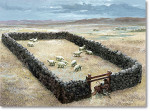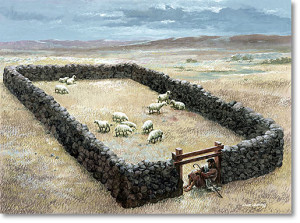 Based on some of the recent posts from Sam Riviera about helping the poor and homeless in our communities, many people have emailed me about how they can begin doing this in their own communities.
Based on some of the recent posts from Sam Riviera about helping the poor and homeless in our communities, many people have emailed me about how they can begin doing this in their own communities.
Here is one example of a message that was sent in:
I have been following your posts for some time. You present a freshness to “Christianity” that I rarely see.
The blogger who said that he had quit going to church but it still hurts I am afraid I share that same sentiment. My husband and I stopped late last year. He for different reasons than myself but both are the reasons you and this blogger mentioned. We are older believers and have seen much.
Since I was a little girl, I have been saddened by the Church’s response to those less fortunate. Today I am deeply disturbed by how much it has become a house of hate instead of love. I don’t presume to say that all Christians are like that. I only know that one is way too many.
I would appreciate any help you can give me on gaining the courage to do what you and your family does. How do I get others involved? Thank you for your daily inspiration and love.
I think that this is a question many people have, so I decided to write a post about it.
First, I am encouraged by emails and comments like this because it shows that many people are taking the courageous step of following Jesus wherever He leads. I am convinced that “leaving church” so that we can “be the church” is one of the most difficult–but important–steps a person can make in their life of discipleship. This step is not for everyone, but I think it is becoming more and more important for people today if they want to see Jesus at work among those in our communities who are truly needy.
Second, as to how to start, Sam included many practical suggestions in his blog series about how to get started, but let me share a little bit about what we are doing in my family.
My recommendation is this:
Begin small. Very small.
How small? The biggest small way you can start: with prayer.
Pray for opportunities to present themselves. Pray that Jesus would open your eyes and ears to see where He is leading.
Then, begin looking and listening.






 I heard of a woman today who got attacked by a dog, climbed a telephone pole, fell out of a tree, was yelled at by a police officer on a 911 call, got patched in to the State Police in New York, was almost arrested and sent to jail, trespassed on several people’s property, hurtled fences and hedges in a mad dash through a neighborhood, and even convinced a former mayor of our town to call in some favors to the local power company.
I heard of a woman today who got attacked by a dog, climbed a telephone pole, fell out of a tree, was yelled at by a police officer on a 911 call, got patched in to the State Police in New York, was almost arrested and sent to jail, trespassed on several people’s property, hurtled fences and hedges in a mad dash through a neighborhood, and even convinced a former mayor of our town to call in some favors to the local power company. Yes, he is our cat. We got him for our girls at Christmas. He has been missing for four days, and Wendy found him perched 30 feet up in the air on a telephone pole, and… well, take all the events I described above and fit them together into some sort of story (any crazy story will do) and you pretty much have what happened today as she tried to rescue Christmas.
Yes, he is our cat. We got him for our girls at Christmas. He has been missing for four days, and Wendy found him perched 30 feet up in the air on a telephone pole, and… well, take all the events I described above and fit them together into some sort of story (any crazy story will do) and you pretty much have what happened today as she tried to rescue Christmas.
 I am so proud of my three daughters… A daddy has got to boast a bit.
I am so proud of my three daughters… A daddy has got to boast a bit.


 I occasionally post
I occasionally post 
 Yesterday we looked at Acts 16 and the text which speaks about
Yesterday we looked at Acts 16 and the text which speaks about 




 From time to time Christians tell my wife and I that “Loving the poor and homeless and your neighbors is all well and good. But that’s really not all that important in the grand scheme of things. Getting them to heaven is the important thing. You should be telling them about Jesus so they can get saved and go to heaven. That’s what they really need.”
From time to time Christians tell my wife and I that “Loving the poor and homeless and your neighbors is all well and good. But that’s really not all that important in the grand scheme of things. Getting them to heaven is the important thing. You should be telling them about Jesus so they can get saved and go to heaven. That’s what they really need.” I’ve hugged a crying biker on his Hog in the middle of the street, a bank robber, Viet Nam, Iraq and Afghanistan veterans and more. I even hugged a crying city councilman. (He said “Never in all my life have I ever seen or even heard of such a thing. If churches did this kind of stuff I might be interested in going to church.”)
I’ve hugged a crying biker on his Hog in the middle of the street, a bank robber, Viet Nam, Iraq and Afghanistan veterans and more. I even hugged a crying city councilman. (He said “Never in all my life have I ever seen or even heard of such a thing. If churches did this kind of stuff I might be interested in going to church.”) If they’re willing to share their stories and their lives with you be thankful. You’re learning to care, learning to love, learning to share.
If they’re willing to share their stories and their lives with you be thankful. You’re learning to care, learning to love, learning to share.